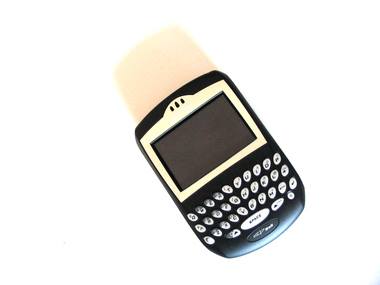A participant in one of my time management workshops recently shared that her corporate culture has evolved to the point where a manager who owns a Blackberry is expected to respond to email within the hour. In a few of those instances in which she took too long to respond, the results was an email to her boss’s boss with a complaint. This made me wonder… What happens when an employee receives the “gift” of a Blackberry or iPhone from their company? What unpoken expectations are delivered along with the smartphone? What is the human resource department doing to create policies to prevent the worst from happening — executives sending messages back and forth at 5 am, or 20 hour games of “email ping-pong.” One enlightened company I am aware of actually has had a long-standing policy that their managers cannot send or read email of phone calls on their designated days off.
Of course, neither RIM nor Apple is to blame. Instead, bad habits are becoming enshrined into company practice, and the result is a drop in productivity. Sending an email entitled “URGENT” has turned into the new way of delivering urgent messages, replacing the telephone. The results are simply disastrous, as professionals chain themselves to their smartphones, checking and re-checking their email, just in case they received an urgent email in the last five minutes. That’s a LOT of checking for a 1 in 500 event. That’s also a LOT of wasted attention. By now, we probably have all been subject to “email attention,” which differs from the regular attention that one receives in a normal in-person, or phone conversation. We start out talking with a colleague and the conversation goes well until we detect that they have made the switch to checking their device to see if they have received any urgent email. Their responses become just a little delayed, and we can sense that something has shifted as they join the latest game of email ping-pong happening somewhere in cyber-space. Whether they are standing in front of us, or 3000 miles away, the effect is the same — the conversation slows down as they hit reply, start typing and hit send, even as they insist they are “still listening” when challenged. Unfortunately, it’s fear that’s driving them to unproductive and ineffective habits. This is what some of their spouses, kids, friends and colleagues are seeing when they react with a shake of the head, and words like “addicted” and “Crackberry” are muttered just outside earshot. A few have seen the light and are returning, losing, and even breaking their companies’ Blackberry’s and iPhones. Even fewer are confronting the culture of fear and intimidation that has subtly being created with the aid of this new technology. It takes courage to say no to bad habits, no matter how wide-spread they are. It takes a clear mind to say yes to a higher productivity that is waiting for companies that can see the trap clearly, and are willing to set new policies to address them.

